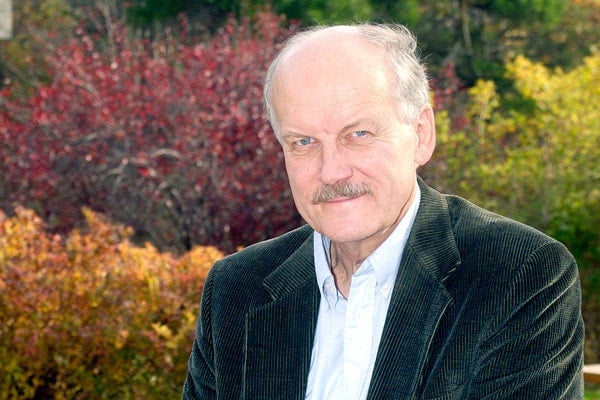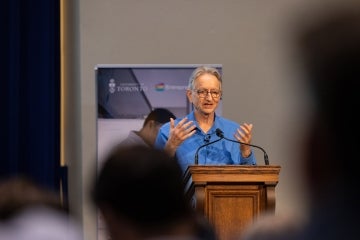
Solar Dance: Genius, Forgery and the Crisis of Truth in the Modern Age
Published: February 6, 2013
University of Toronto Scarborough Professor Emeritus Modris Eksteins’ book about Vincent van Gogh and the rise of Modernism has won the $40,000 British Columbia National Award for Canadian Non-Fiction.
Eksteins’ Solar Dance: Genius, Forgery and the Crisis of Truth in the Modern Age looks at the political and artistic movement through the lens of van Gogh’s work, especially as it was perceived in Germany’s Weimar Republic.
The prize, one of the most prestigious in Canada for non-fiction literature, is presented by the British Columbia Achievement Foundation, an independent foundation established by the province in 2003. Solar Dance is also nominated for the Hilary Weston Writer's Trust prize for non-fiction.
Eksteins is a professor of history specializing in 20th century Europe, especially Germany between the World Wars. In his book, he examines how Van Gogh helped give rise to artistic, cultural and political movements that emphasized authenticity and the primacy of personal experience.
The jury that bestowed the award called the book a “fascinating work of cultural history, and a provocative analysis of the roots of the modern era as it developed in the social and political turmoil of the early 20th century.”(Read more about the ceremony here.)
 In an interview with Eksteins last year, shortly after the book came out, writer Kurt Kleiner mentioned the positive reviews Solar Dance had already received and asked Ekstein if he was happy with the reception.
In an interview with Eksteins last year, shortly after the book came out, writer Kurt Kleiner mentioned the positive reviews Solar Dance had already received and asked Ekstein if he was happy with the reception.
"I won't say that I don't read the reviews," Eksteins said. "But none of my books have met with early enthusiasm. A couple of my books, one in particular, has gone on to have a rather long life and so I hope that will be the case here as well. But I won't deny that I do like to provoke, I do like to throw out ideas.
"I certainly don't believe in history as truth. That is an old idea, an old impulse that again I think we've outgrown. And the idea of history as truth has suffered the same fate that other categories and definitions in the 20th century have suffered. So I enjoy the debate that I hope I have inspired with my various books, and I hope this book will produce a similar kind of debate."
You can read the complete interview here.



